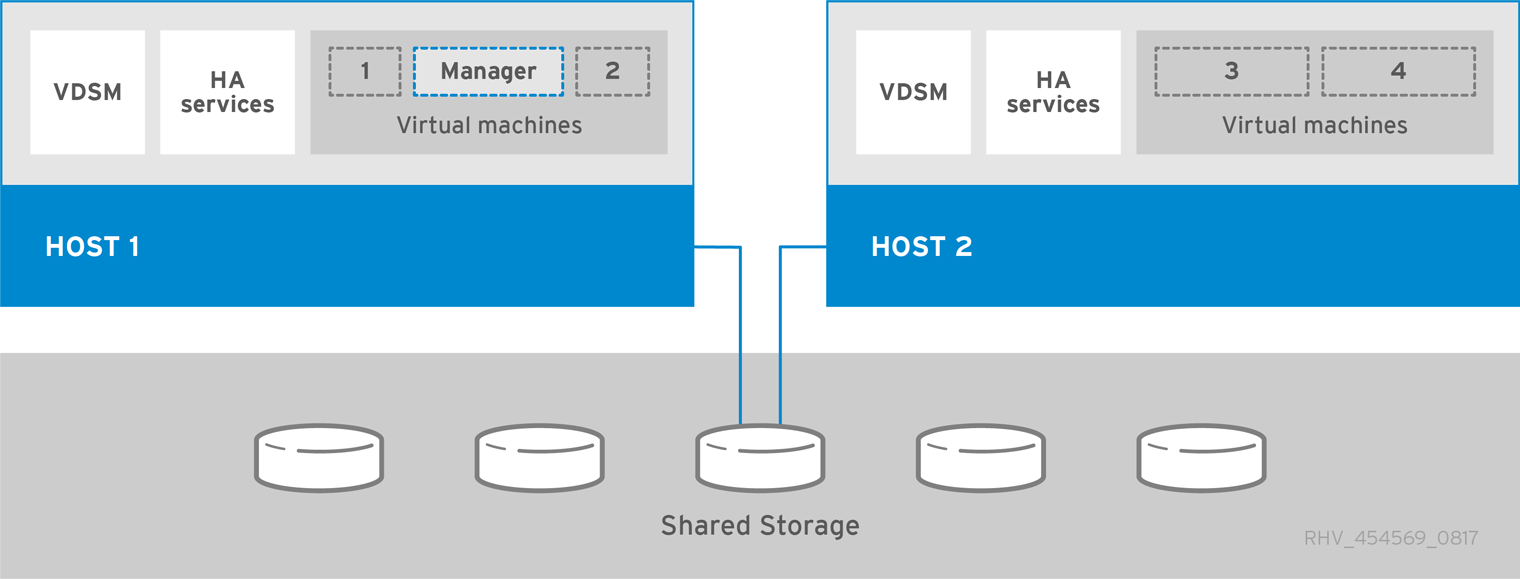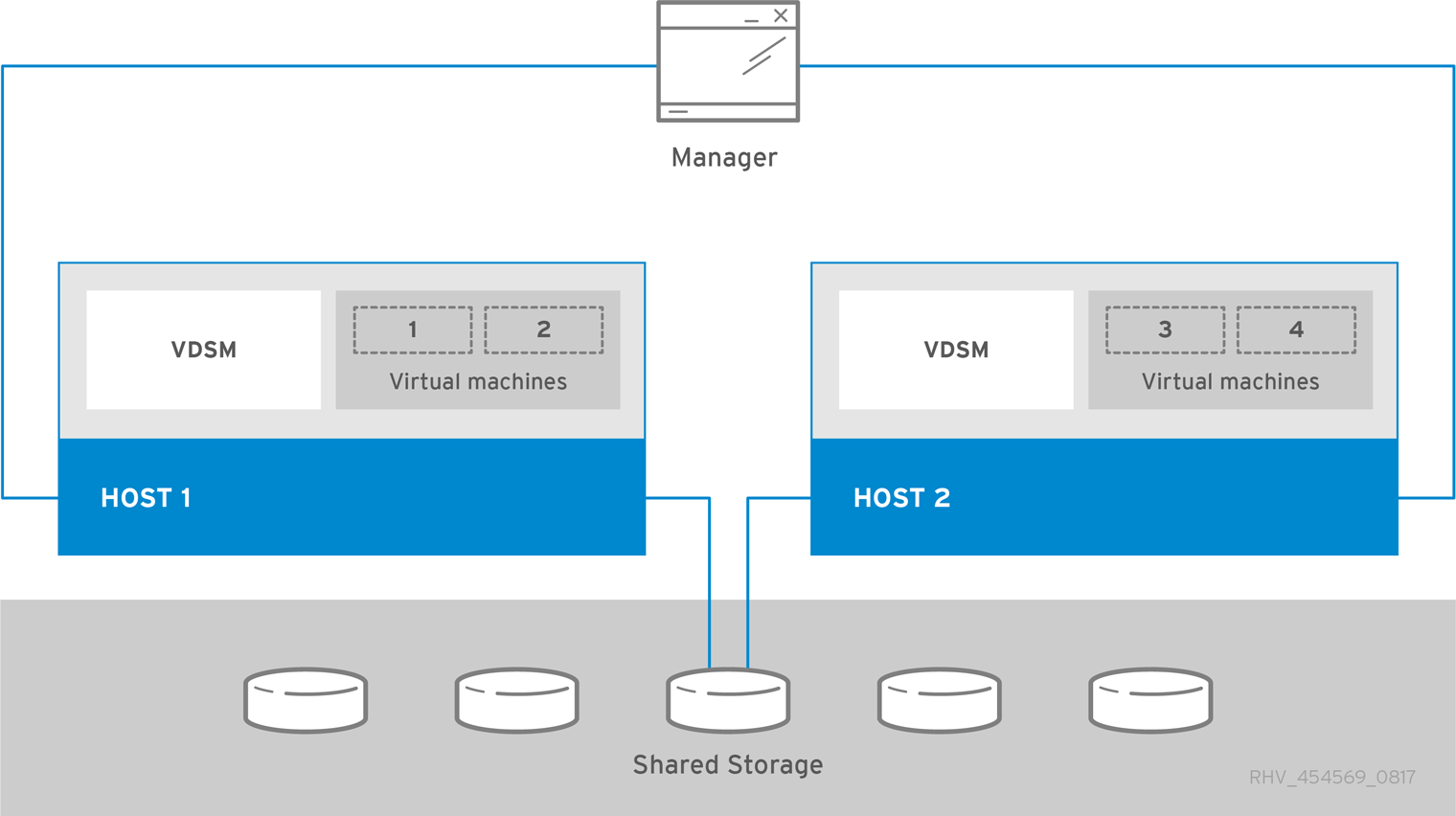Chapter 1. Red Hat Virtualization Architecture
Red Hat Virtualization can be deployed as a self-hosted engine, or as a standalone Manager. A self-hosted engine is the recommended deployment option.
1.1. Self-Hosted Engine Architecture
The Red Hat Virtualization Manager runs as a virtual machine on self-hosted engine nodes (specialized hosts) in the same environment it manages. A self-hosted engine environment requires one less physical server, but requires more administrative overhead to deploy and manage. The Manager is highly available without external HA management.
The minimum setup of a self-hosted engine environment includes:
- One Red Hat Virtualization Manager virtual machine that is hosted on the self-hosted engine nodes. The RHV-M Appliance is used to automate the installation of a Red Hat Enterprise Linux 8 virtual machine, and the Manager on that virtual machine.
- A minimum of two self-hosted engine nodes for virtual machine high availability. You can use Red Hat Enterprise Linux hosts or Red Hat Virtualization Hosts (RHVH). VDSM (the host agent) runs on all hosts to facilitate communication with the Red Hat Virtualization Manager. The HA services run on all self-hosted engine nodes to manage the high availability of the Manager virtual machine.
- One storage service, which can be hosted locally or on a remote server, depending on the storage type used. The storage service must be accessible to all hosts.
Figure 1.1. Self-Hosted Engine Red Hat Virtualization Architecture

1.2. Standalone Manager Architecture
The Red Hat Virtualization Manager runs on a physical server, or a virtual machine hosted in a separate virtualization environment. A standalone Manager is easier to deploy and manage, but requires an additional physical server. The Manager is only highly available when managed externally with a product such as Red Hat’s High Availability Add-On.
The minimum setup for a standalone Manager environment includes:
- One Red Hat Virtualization Manager machine. The Manager is typically deployed on a physical server. However, it can also be deployed on a virtual machine, as long as that virtual machine is hosted in a separate environment. The Manager must run on Red Hat Enterprise Linux 8.
- A minimum of two hosts for virtual machine high availability. You can use Red Hat Enterprise Linux hosts or Red Hat Virtualization Hosts (RHVH). VDSM (the host agent) runs on all hosts to facilitate communication with the Red Hat Virtualization Manager.
- One storage service, which can be hosted locally or on a remote server, depending on the storage type used. The storage service must be accessible to all hosts.
Figure 1.2. Standalone Manager Red Hat Virtualization Architecture
